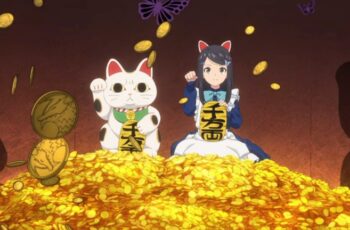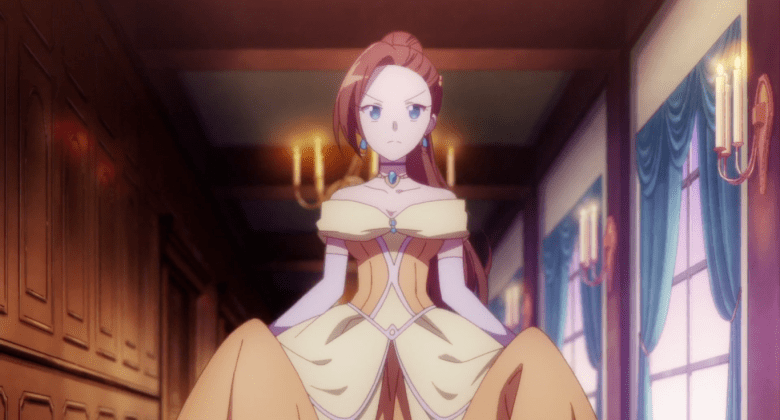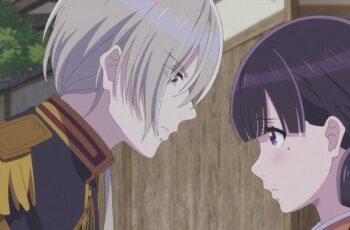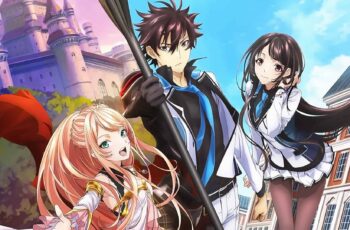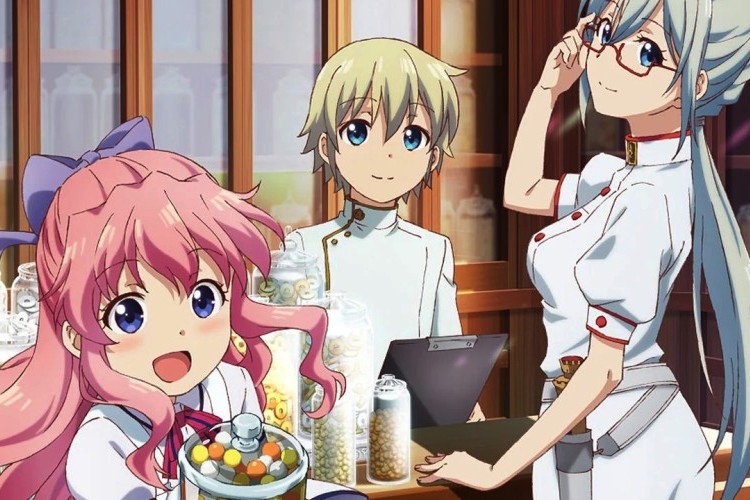
Parallel World Pharmacy takes a different direction from the usual isekai. When medical researcher Kanji Yakutani dies from karoshi, he wakes up to find himself reborn in a medieval fantasy culture with all his medical knowledge intact. Fortunately, he was also reborn to a pharmacist family and, in isekai fashion, born to power. In his case, Kanji, now called Pharma, was born with the magical ability to create any molecule he can envision and also deconstruct magic and molecules. Once he sees the state of medical science, he starts to work to change it by introducing modern medicines.
Pharma gains the respect of the Empress by treating her once-incurable illness; she funds Pharma’s Parallel World Pharmacy and supports his efforts to reform medicine and make it available to all classes. As you can expect, vested interests resist him, but this is a healing anime, so what conflicts there are solve easily. If there’s a criticism I have, it’s centered on this. Pharmacy resolves conflicts a little too easily and without much development. During the final story arc, involving one of the deadliest plagues humanity faced, a villain was introduced and bettered almost immediately. The manga may do better than the anime in this, but I haven’t read it.
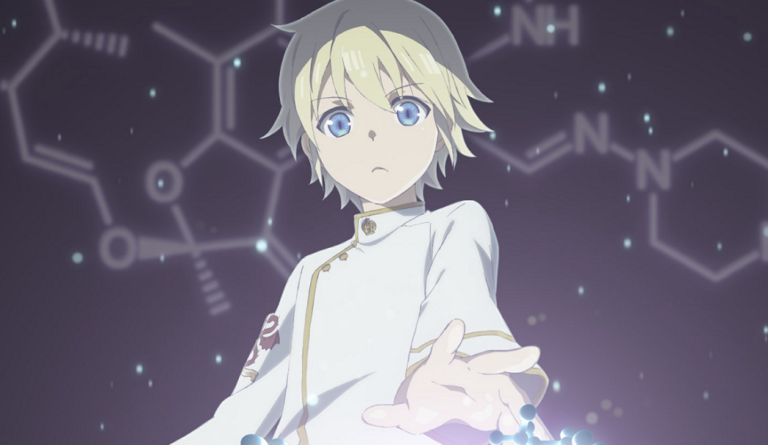
Unlike many isekai heroes, Pharma doesn’t fall into arrogance; he remains humble and respectful of the world’s medical knowledge. In fact, he’s often humbled by his father’s knowledge and ability despite the lack of medical instruments and medicine. The dynamic between Pharma and his father is interesting: Pharma was around his father’s age when he died. His father notices the difference in his son, which makes for tension during the first part of the story. I won’t go into specifics so not to spoil it. It’s refreshing to see father and son dynamics in an anime.
The world proves to be an interesting character too. There’s many hinted power dynamics that another season could develop. There’s class dynamics which could come into play in addition to nation-state conflicts. After all, we don’t know how the other nations are reacting to the sudden surge in medical development. Also the magic system has room for development, particularly in war. War, in turn, would offer another avenue to explore medical science and Pharma’s role in modernizing it. Of course, all of this goes beyond what healing anime like Parallel World Pharmacy does.
And it does that well. Pharma tries to heal everyone who comes to him, regardless of class, and there’s fun catharsis to see him one-up ignorant people. Plus, it is nice to watch a character who makes healing people his life’s work, and, even better, isn’t an impulsive person. Pharma is thoughtful, careful, and decisive when he does take action. Ever the scientist, he uses reason instead of the usual shonen protagonist method of headbutting a problem until it gives way. I hope to see more protagonists like him.
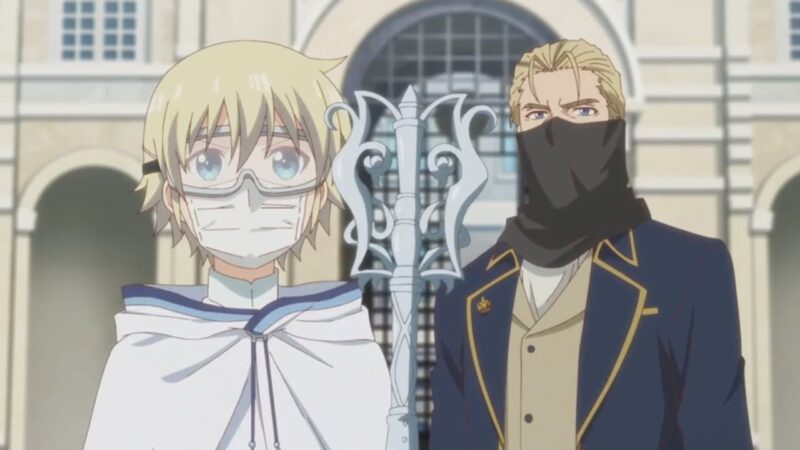
Story arcs center upon various medical challenges Pharma faces and how he navigates not only the challenge but also how he has to navigate the world. Despite the sometimes terrible problems, his hopefulness shines. In fact, the anime ought to make you feel gratitude for the advances of medical science. It’s similar to how Dr. Stone helps you appreciate the comforts science has produced. Gratitude heals.
Parallel World Pharmacy shows how the isekai genre still has potential to tap even within the fantasy-world trope. The story could’ve gone as others have: toward perversity and arrogance. Often isekai protagonists behave with arrogance because of their superior knowledge. Pharma doesn’t do that, even though he was justified in doing so. Pharma numbers among the protagonists who break the template.
This anime makes me wonder what else isekai could explore. Of course, we will see other medical-focused isekai. There’s always an influx of copycats of varying degrees of quality. Of course, isekai could move in a different direction: a fantasy world character reborn in a science-fiction world, for example.
Parallel World Pharmacy provides a good example of how anime and manga remain creative. Too often I see templated books come into the library system; stories that have been copied and done ad nauseum. While anime also does this, it tends to be more creative than popular novels and what’s offered on streaming services. This might be bias speaking. It seems manga and anime remain experimental with their stories and are sometimes rewarded whereas experimental novels, those that don’t follow the templates, aren’t published as often. It’s curious considering the amount of effort manga and anime take to produce. You’d think they would be even more selective. Of course, unless you work inside these publishing houses, you can’t see what’s rejected. Still, stories like Parallel World Pharmacy are refreshing. If you are looking for a decent and different healing-isekai, give it a watch.
